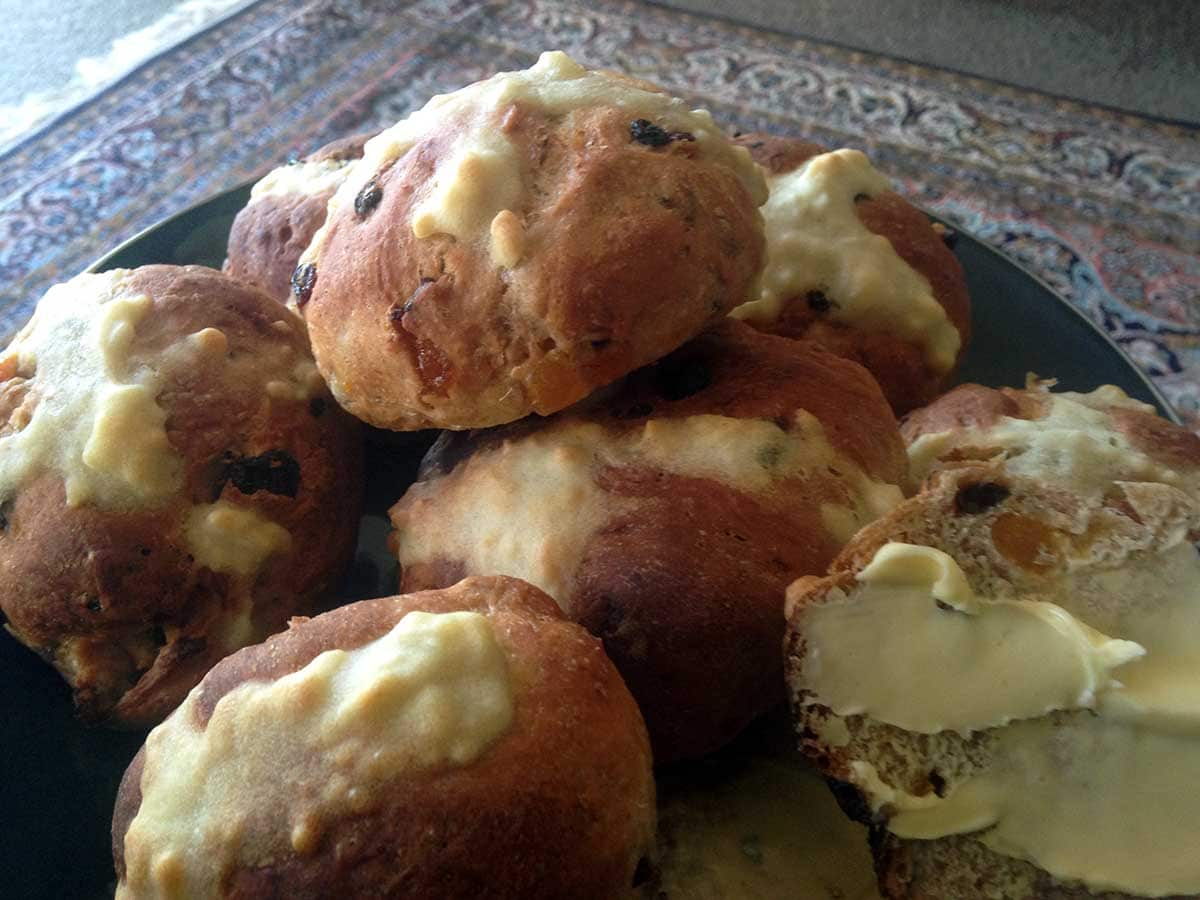I’ve been looking for a way into Easter with my kids by that goes beyond chocolate eggs and over-sized bunnies.
Just so you know, I’m not a total wowser – I’ve spent years staying up late in order to hide eggs in bushes only to be woken early and dragged outside pre-cuppa by over-excited pre-schoolers dying to know how many brightly wrapped choccies this year’s hunt will bring.
But my kids are older now. Old enough to know it’s Mum behind the myth.
Their knowledge makes me re-think how I approach a significant religious event in an age-appropriate fashion given that I am Hindu but my kids’ cultural framework – as it relates to Easter in Australia – is Christian.
They know about Christ. But what resonates for them is food; the ritual and festival of food that is so much a part of our family’s Hindu practice and religious philosophy.
And this is how we are turning the ritual baking of hot cross buns in to our very own connection to Christian Easter culture.
Superstition, religious significance and royal controversy tie the hot cross bun to Easter: From the very obvious signature of the cross in egg-washed white and the myth of bread baked on Good Friday as having curative powers, to Queen Elizabeth I and her 1592 edict banning sales of the bun outside of Good Friday and Christmas Day, hot cross buns are an edible manifestation of past belief.
It’s a lot for a little bun to hold, and yet food has the ability to contain this breadth and scope of belief because food holds within its history the breadth and scope of us. This is because recipes are blueprints. The way in which cultures interact with these blueprints over extended spans of time establishes broad resonance. This broad resonance is what we tap in to every time we cook.
This is because recipes are blueprints. The way in which cultures interact with these blueprints over extended spans of time establishes broad resonance. This broad resonance is what we tap in to every time we cook.

Made together: this year's hot cross buns made by the author's family. Source: Sarina Lewis
So by making the decision to create my own familial connection to Easter via the baking of a batch of Good Friday hot cross buns, I’m making the decision to gain an Easter foothold that extends deeper than chocolate without that direct line to God. Not because I am not open to God, but because this festival falls under the auspices of one that is not mine.
Isn’t that magical? That food can DO that? Fill your kitchen with the smell of home baked spiced hot cross buns this Easter
Fill your kitchen with the smell of home baked spiced hot cross buns this Easter

Source: SBS Food
And indeed, most of us conduct ourselves in this way at least some of the time; maybe it’s dumplings and firecrackers to celebrate Chinese New Year or lit candles and mithai for Diwali.
Giving us a way in to celebrations that have – or gain – momentum within cultures is one of food’s greatest gifts.
For me, this emphasis on homemade hot cross buns is not about diminishing the religious or spiritual significance of Easter but of becoming part of the community dialogue and interaction that naturally winds around the weekend.
As we prepare for our big morning bake the boys and I talk about what hot cross buns mean. We talk about where they came from. We talk about how they relate to Good Friday and to Christian theology and to Christ on the cross.
But we can talk about lighter things, too – things to which a nine-year-old and six-year-old can connect: Like how making the buns just once a year at the appropriate time makes our buns a homage and a marker; how it encourages ritual and what ritual means when it comes to understanding the things that make us, us.
I’m very open about my love of my gods and my religion, but that doesn’t mean that my kids and I can’t share in the message of another’s, too.
From where I stand today, at my kitchen sink, readying for a rising dough, I can look back with nostalgia and joy at those Sunday mornings in the cold autumn air shivering in my pyjamas as the kids conduct their chocolate egg hunt.
But I’m more excited to talk candied orange peel and currants and sultanas; to talk quantities of spice and kneading techniques; to have this slower, more personal food experience with my two sons in order to celebrate all the good things that love – and hot cross buns – brings.




